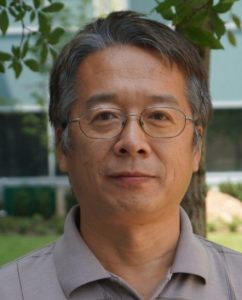Precision Chemical Dynamics and Quantum Control of Ultracold Molecular Ion Reactions
A grand challenge of chemistry is to understand and control chemical reactions with single quantum state precision. It is anticipated that this full quantum control of chemical reactions will lead to a revolution in physics and chemistry with impacts reaching from material science to drug design. To fully realize this goal, however, requires knowledge and control of the quantum states of both the reactants and the products of the chemical reaction – i.e. so-called state-to-state chemistry. Spectroscopic techniques can allow full chemical reaction characterization and control, providing fundamental insight into chemical reaction dynamics in a fully quantum regime, leading to a myriad of technological benefits.
Spectroscopic data are needed for the photo-manipulation of ultra-cold molecular ions.Gas phase samples are produced by pulsed laser ablation and the ablation products are cooled to temperatures around 10-20 K by supersonic expansion in an inert carrier gas (typically He or Ar). We use resonant enhanced multi-photon ionization (REMPI), laser-induced fluorescence (LIF), and dispersed laser induced fluorescence (DLIF) to characterize a variety of neutral diatomic and triatomic molecules. Corresponding ions are characterized through zero electron kinetic energy (ZEKE) spectroscopy.
Current Researchers

Jiande Han (he/him)
Post-doc